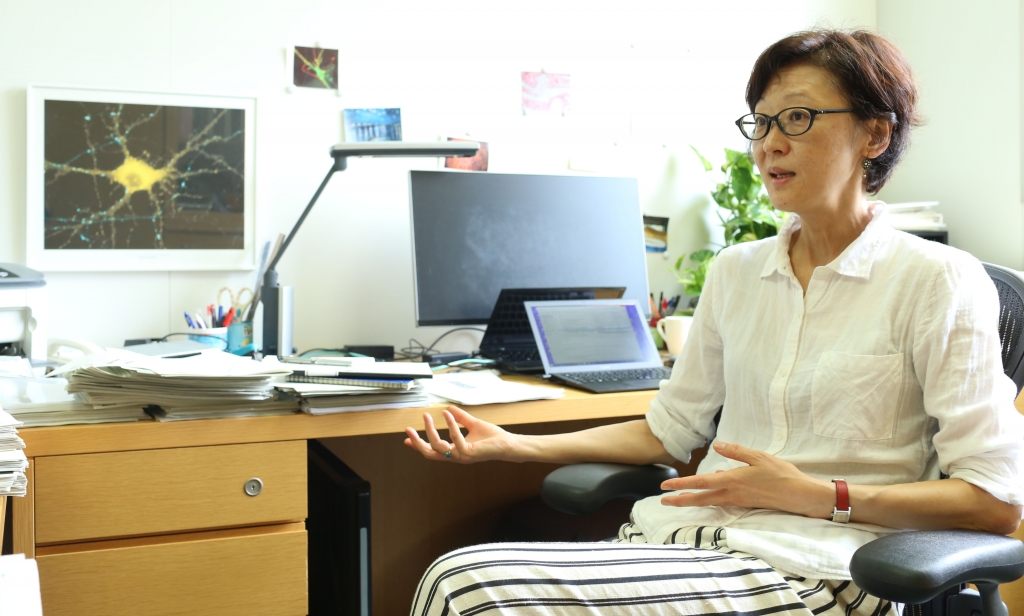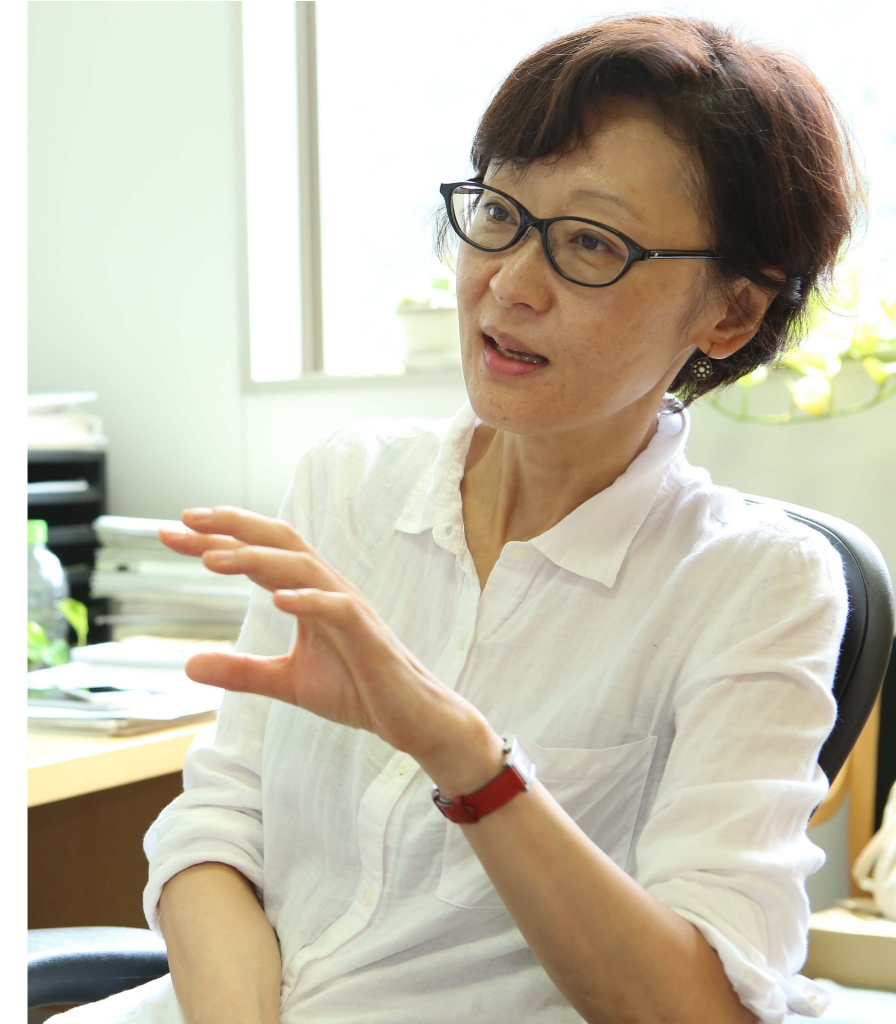Toughing it out for science — what motivates BSI’s new director?
“The rewards are high when you get that eureka moment”
August 3, 2017
Interview by Amanda Alvarez
Photo credits: BSPO
“I’m an accidental scientist,” says Yukiko Goda. Accident or not, Goda is now serving as acting director of the RIKEN Brain Science Institute, where she heads a research group dedicated to understanding the connections between neurons. She cares passionately about getting a whole new generation interested in science, and hasn’t lost the youthful enthusiasm in describing the Golgi apparatus, the cellular component she studied early in her career. But she also worries that students may perceive research as an unattractive choice. “The science environment can be harsh,” Goda says. “Increased transparency and tackling biases can help level the playing field for everyone.”

Is a scientific career lost on young people?
I see a looming crisis because fewer students are interested in pursuing higher degrees in science. In 10 years we may lack a critical mass of young brains. Scientists work long hours and may not be well-paid and young people are worried about the impacts on quality of life. The culture surrounding time management was an issue, not just in Japan but around the world: not being able to leave the lab before your boss or having lab meetings on the weekend, but these practices have changed. Long working hours don’t necessarily lead to productivity. Then again, I really believe that you can’t rush basic science. Scientists spend those long hours because the rewards are quite high when you do get that eureka moment. Neuroscience, especially in Japan, is still up and coming, and young researchers have a chance to make huge impacts as the field matures. There are still a lot more discoveries to be made.
What continues to inspire you?
I find beauty in the cellular and molecular mechanisms at a minute level. Protein purification is hands-on artwork, like cooking, which I also really enjoy. The first time patch-clamping a neuron, getting a recording, it’s exciting. It’s real and live. Fluorescent labeling of the beautiful architecture of the brain is also inspiring. The first time I saw a dye-filled neuron, I had to call over everyone in the lab and say “look at this!”. When you see it with your naked eye, the nervous system is a beauty. And understanding how its parts work and fit is gratifying.
In your research you’ve covered everything from molecules to transcription, bacteriophages, membrane trafficking and cell-cell interactions. But you started out in chemistry, right?

I had diverse interests and never thought to become a researcher. My parents didn’t force me in any direction, and I always had wide interests in the arts, but science and math had no language barriers. I had a fantastic professor in chemistry—teachers are so important—and became a chemistry/biochemistry double major at the University of Toronto. I visited a lab for the first time as an undergrad: it was a cool space with flasks and guitars and it looked like the students and postdocs were having fun. I worked in a chemistry lab in the summer and enjoyed doing the experiments, but they were kind of dry, measuring reaction kinetics. Later in a biology lab I got to work closely with the professor and got hands-on training. Having role models to help you explore the science jungle is so important—I had Chuck F. Stevens at the Salk Institute for my postdoc and Suzanne Pfeffer at Stanford where I did my PhD. A turning point was taking a developmental neurobiology course at Cold Spring Harbor Laboratory. At that point, the molecules for axon guidance had not been worked out. Hearing that long-term potentiation had been reconstituted in vitro set me on a new course.
Despite your admission that “science is harsh”, how would you motivate students to stick with it?
Don’t forget the child-like pure enjoyment of scientific discovery. Designing experiments and finding exciting topics to study can be rewarding. Most of the time experiments don’t work. You have to keep the purity and interest that drove you from the beginning into science. The hard part is that what you find exciting may not be what others find exciting: you have to stay one step ahead of everybody, but not so far ahead that they don’t understand what you’re doing. Finding that sweet spot and designing ways to tackle it, that is where science is creative. And in neuroscience, the way problems are tackled continues to change. We had embryonic stem cells and knockout mice, now it’s induced pluripotent stem cells, optogenetics and the interface with engineering and AI. I’m curious to see how things unfold. Not just one team can deal with all the technology and know-how to overcome problems, so teamwork in science is also evolving. I think the unique environment of the Brain Science Institute fosters this kind of interdisciplinary teamwork, which is vital for moving science and the scientific community forward.
What can be done to make science more inclusive?
We do need affirmative action for minorities, but unless the system lets them exercise some power, such gains may be lost until the infrastructure can be improved. We need to include more women at all levels of decision-making and on committees. Japan still has a long way to go in this. We need to make scientific environments welcoming and tackling unconscious biases in the workplace is part of this. I grew up being sensitive to cultural and ethnic and gender differences and we have to be open about these to make science welcoming for everybody. Transparency and acknowledging these differences can make our scientific progress even stronger.
Related Posts
![]() RIKEN Press Release: Change in the brain: astrocytes finally getting the recognition they deserve
RIKEN Press Release: Change in the brain: astrocytes finally getting the recognition they deserve